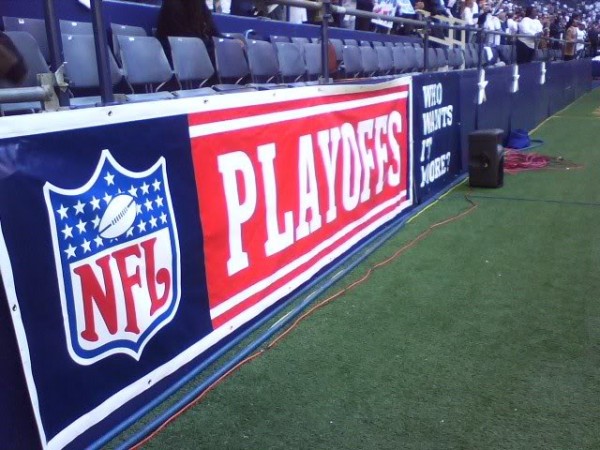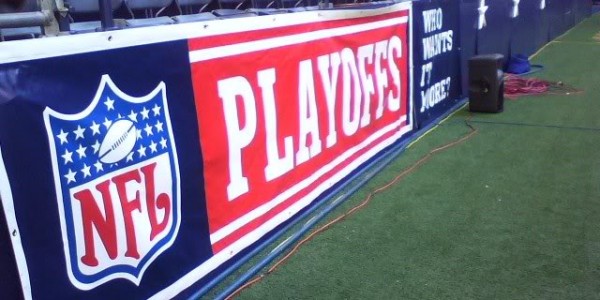
Change comes slowly in the NFL, but it’s usually easy to spot from miles away. With the league guided by making money for its owners while trumping anything else, expanding the playoffs for financial reasons seems quite normal, and it looks like in the annual spring meeting we’ll see the postseason format changed from 12 teams to 14 teams, starting no later than the 2015 season.
At the moment, we have a 12-team playoff. Six teams from each conference: Four division winners and two wild-card teams. The two division champions with the best records get a bye week, while the other four play in the wild-card playoffs, advancing to the divisional playoffs and onto the conference championship game, which determines who goes to the Super Bowl.
How will it work with 14 teams? Not that different. The number one overall seed in each conference will get a bye week, while the other six teams battle it out in a very busy wild card weekend. The only problem for the league is scheduling the games. From three games on Saturday and Sunday to spreading it out on three or four days. It also has something to do with TV contracts, but for a league that has added a Thursday night game which means teams get only four days of rest before it, that issue won’t be a problem at all.

Money, obviously, is the big driver in this expansion bid: the league would increase its stadium receipts for the wild-card weekend by 33%, not to mention the more lucrative broadcast deals for the golden egg of American sports. It also means more teams in the mix for a postseason spot during the season, upping the interest where there might be none on a usual season. There’s no fear of weakening the playoffs or hurting the exclusivity, because things are usually very close and tight in the middle of the pack of the NFL between some wild card teams and those that didn’t make it.
So how much money is there? Both the owners and the players make more from this. Revenues from a home game vary per stadium, but the estimated range is between $5 million and $10 million per game, which means the NFL can generate $20 million more from the extra games they’ve expanded to. It’s hard to say by how much it’ll increase TV revenue, but it’ll be around tens of millions of dollars for the highest bidder.
The players will make something as well. Players on the two seventh seeds would, according to the collective bargaining agreement, earn $22,000 for participating in a 2014 wild-card game. That’s a total of at least $2.332 million in new playoff bonuses. If byes for the No. 2 seeds are eliminated, as expected, players on those teams would earn $24,000 each during wild-card weekend for a total of at least $2.544 million more. There are also the media rights which we mentioned, but the number is difficult to calculate at the moment.
This might be the path for a 16-team playing field in the playoffs, which brings back the second bye. The players don’t mind an expanded playoffs. They’re against the 18-game regular season, but they don’t mind the playoffs adding a game, especially if it takes away one preseason game. The fans are against it, but it seems that polls don’t mean nothing – fans keep coming to see live and on TV this product, which means that a negative poll result right now doesn’t make the NFL feel any different about making this change.
